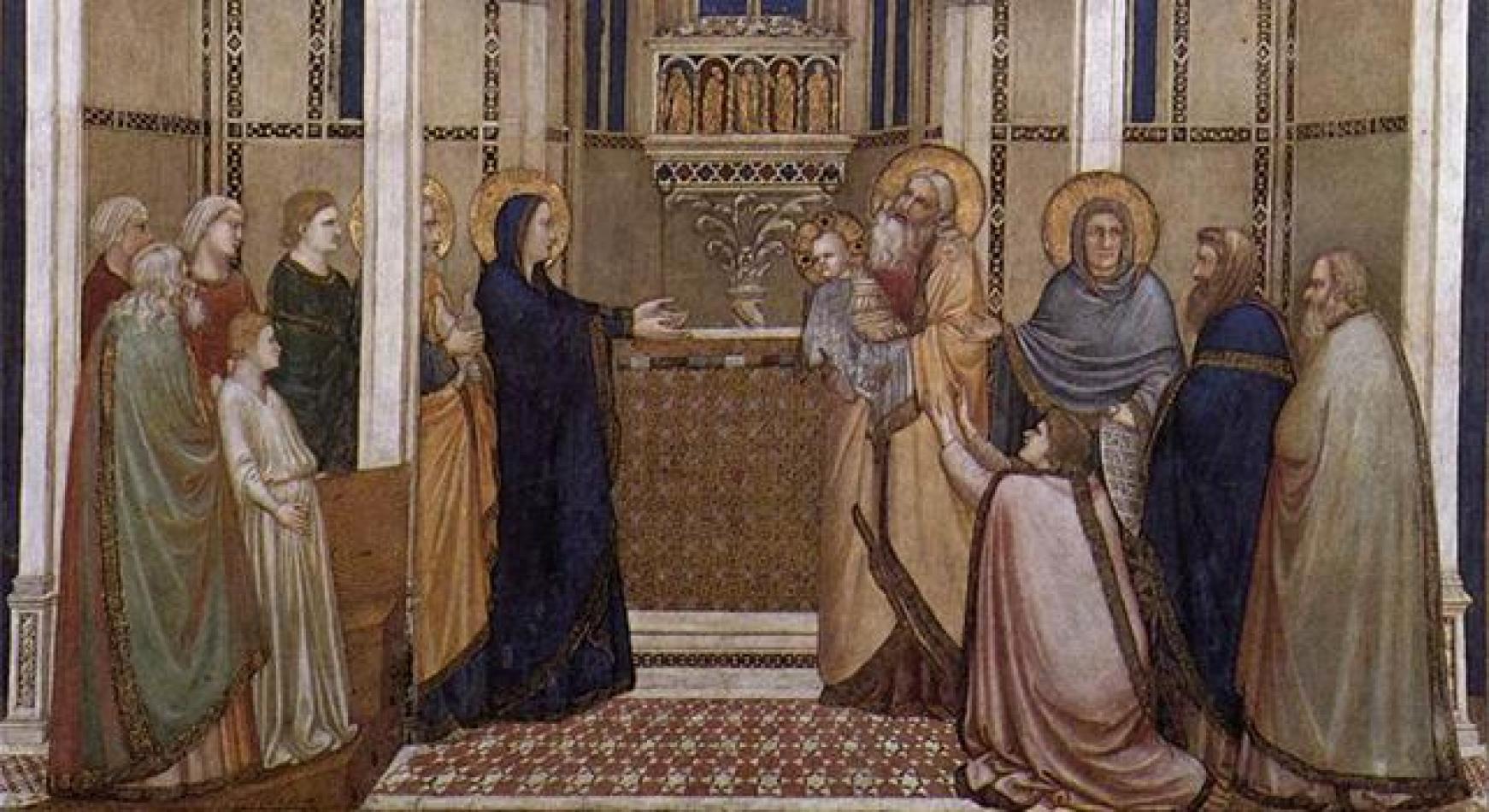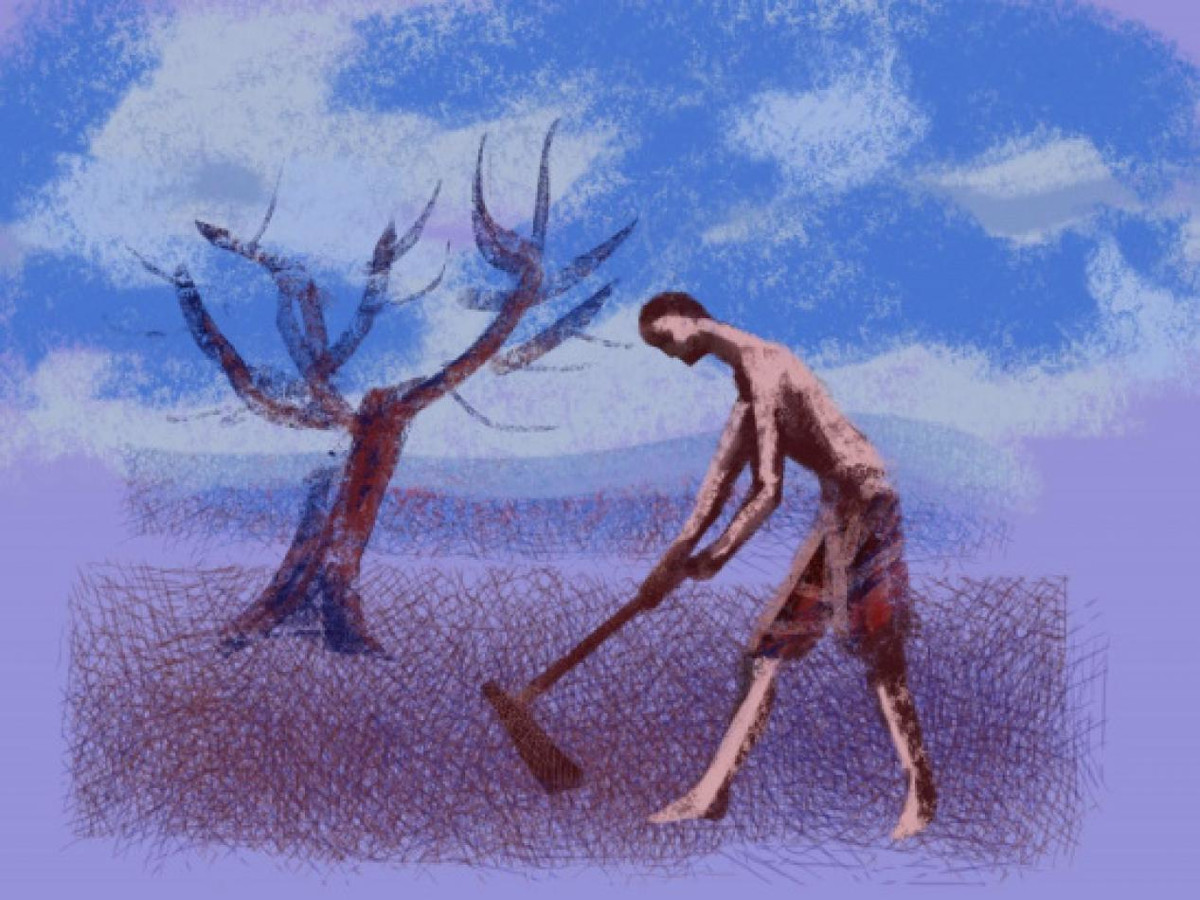Daniel Comboni
Comboni Missionaries
Institutional area
Other links
Newsletter
Easter celebrates the deliverance from Egypt. It is inevitable that it awakens in every Israelite aspirations for freedom and exacerbates the feeling of revenge against Roman oppression. It is also possible that these Galileans, maybe a little fanatics, first exchanged a few and a bit heavy jokes with the guards. Then they have made some provocative gestures, and finally, from words, they passed on to action: some shoving and a fistfight.
To Convert is to Find One’s Identity
Gospel reflection – Luke 13:1-9
In the first part of the passage (vv. 1-5), two true stories are reported: a crime committed by Pilate and the sudden collapse of a tower at the pool of Siloam. Pilate was not a man with a tender heart. Historians handed down several dramatic episodes that have had him as the protagonist. Today’s Gospel tells one. Some pilgrims came from Galilee to offer sacrifices in the temple, probably on the occasion of Easter. They are involved in an act of violence.
Easter celebrates the deliverance from Egypt. It is inevitable that it awakens in every Israelite aspirations for freedom and exacerbates the feeling of revenge against Roman oppression. It is also possible that these Galileans, maybe a little fanatics, first exchanged a few and a bit heavy jokes with the guards. Then they have made some provocative gestures, and finally, from words, they passed on to action: some shoving and a fistfight.
During big feasts, Pilate usually moved to Jerusalem from Caesarea to ensure order and prevent riots. He does not tolerate even the hint of rebellion. He orders the soldiers to intervene, with no respect for the holy place. They massacre the unfortunate Galileans. A brutal and sacrilegious gesture, an insult to the Lord, a provocation to the people that consider the temple house of their God. There, even the priests, even in winter, have to walk barefooted.
Why didn’t the Lord incinerate those responsible for this crime? The Pharisees have their answer: they argue that there is no punishment without guilt. If God willed that those Galileans were slain by the sword, it means that they were laden with sins. But how to accept this explanation? The sinner is Pilate, the wicked are the Roman soldiers.
Someone goes to report to Jesus what had happened. Maybe he thinks of tearing out of his mouth a severe judgment of conviction, an anti-Roman stance. Someone thinks of involving him in an armed uprising. Faced with such a crime he can hardly urge patience and forgiveness! At least he will make a lashing statement against Pilate.
Jesus surprised his frantic and upset interlocutors. He keeps his calm and no uncontrolled word escapes from his mouth. Above all, he rules out the connection between the death of these people and the sins which they have committed. Then he invites us to learn a lesson from this incident: it should read—he says—with a call to conversion. To clarify his thoughts, he recalls another piece of news: the death of eighteen people, caused by the collapse of a tower. It probably occurred during the construction of an aqueduct at the Pool of Siloam. These people—says Jesus—were not punished because of their sins. They died of misfortune; others could have been in their place. This event, too, is to be read as a call to conversion. Jesus’ answer seems to evade the issue. Why doesn’t he take a stance in front of the massacre? His answer surprises because he has always been very real and has certainly no fear to speak his mind.
The oppressive social structures (and that of Pilate is such) are generally very solid, have deep roots and defend themselves with powerful means. It is really an illusion to think that they can be reversed at any moment. Some believe that the use of violence can be an effective, quick and safe way to restore justice. It is the worst of illusions! The use of force does not produce anything good, does not solve problems but only creates new and more serious ones.
Jesus does not comment directly on the crime committed by Pilate. He does not want to get involved in those useless conversations where one is limited to swear and to curse. He is certainly not insensitive to the sufferings and misfortunes. He is moved to tears for love of his country. However, he knows that aggression, disdain, anger, hatred, desire for revenge are useless, indeed, are counterproductive. These feelings only lead to reckless actions that complicate the situation even more.
The call of Jesus to conversion is a call to change the way of thinking.
The Jews cultivate feelings of violence, vengeance, and resentment against the oppressors. These are not the feelings of God. It is urgent that they review their position and renounce the confidence they place in the use of the sword. Unfortunately, they are not prone to conversion and so, forty years later, they will all perish (guilty and innocent) in a new massacre.
Jesus does not try to evade the problem; he proposes a different solution. He rejects the palliatives. He invites us to intervene at the root of evil. It is useless to pretend that one can change something by simply replacing those who hold power. If the newcomers do not have a new heart, not follow a different logic, everything remains as before. It would be like changing the actors of a show without changing the role that they must perform. That is why Jesus does not adhere to the explosion of collective outrage against Pilate. He calls us to conversion, proposes a change in mentality. Only people who have become different, one person with a new heart can build a new world. This is the ultimate solution.
How much time is available to make this change in attitude? It may be deferred to a few months, a few years? Jesus answers to these questions in the second part of today’s Gospel (vv. 6-9) with the parable of the fig tree. The Bible speaks often of this plant that, twice a year, in spring and autumn, gives very sweet fruits. In ancient times, it was the symbol of prosperity and peace (1 Kgs 4:25; Is 36:16). In the desert of Sinai, the Israelites dreamed of a land with abundant water sources, wheat fields, and fig trees … (Deut 8:8; Num 20:5).
The message of the parable is clear: from those who have heard the message of the Gospel, God expects delicious and plentiful fruits. He does not want exterior religious practices, not content with appearances (in the spring, the fig tree bears fruit even before the leaves), but seeks works of love.
Unlike other evangelists who speak of a barren fig tree that is made almost instantly dry (Mk 11:12-24; Mt 21:18-22), Luke, the evangelist of mercy, introduces another year of waiting, before the definitive intervention. He presents a God who is patient, tolerant of human weakness, including the hardness of our mind and our heart.
This forbearing attitude, however, is not understood as indifference to evil. It is not an endorsement of the neglect, indifference, and superficiality. The time of life is too valuable because they may waste even a single moment of it. As soon as one sees the light of Christ he must accept and follow it immediately.
The parable is an invitation to consider Lent as a time of grace, as a new “precious year” which is granted to the fig tree (each person) to give fruit.
Fernando Armellini
Italian missionary and biblical scholar
https://sundaycommentaries.wordpress.com





